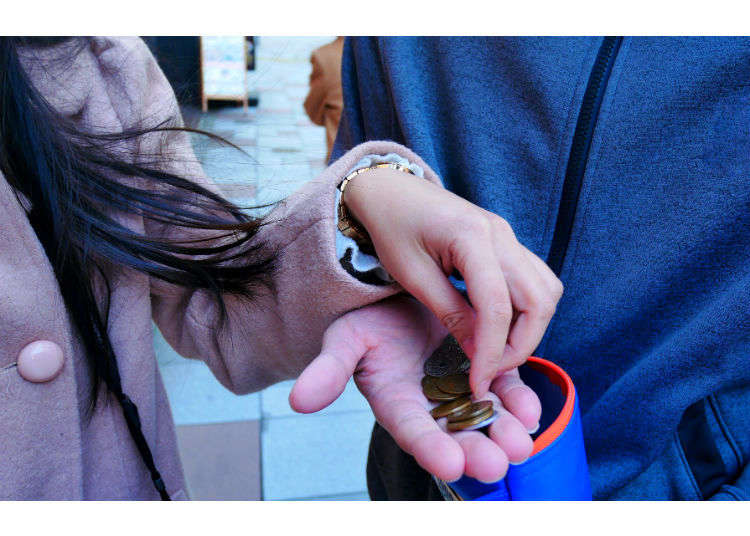
When you think about the difficulties one can encounter when first entering a foreign country, money is a big one. Depending on the country, even a small amount of your own country's currency can be confusing to exchange and can add up to a larger amount. Or on the contrary, one might be uneasy when exchanging a large amount of their own native currency and receive only a small stack of bills in return. Most people have experienced this at one point, especially when they are not familiar with the country's currency and monetary value. How much is your money worth compared to foreign currencies? With a general understanding of the value, you will be able to have a clearer understanding whether something is more or less expensive as compared to buying it in your own country. Let's take a look at the value of some currencies and how to use money in Japan!
How Much is 100 Yen Worth? Exchange Rate Compared With Foreign Currencies
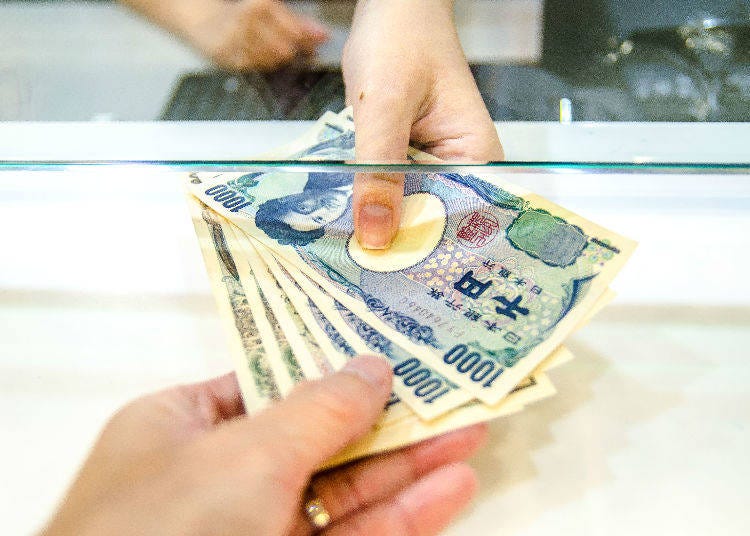
The following chart shows the currency value for each country per 100 Japanese yen. Behold, what you can buy for just ¥100!
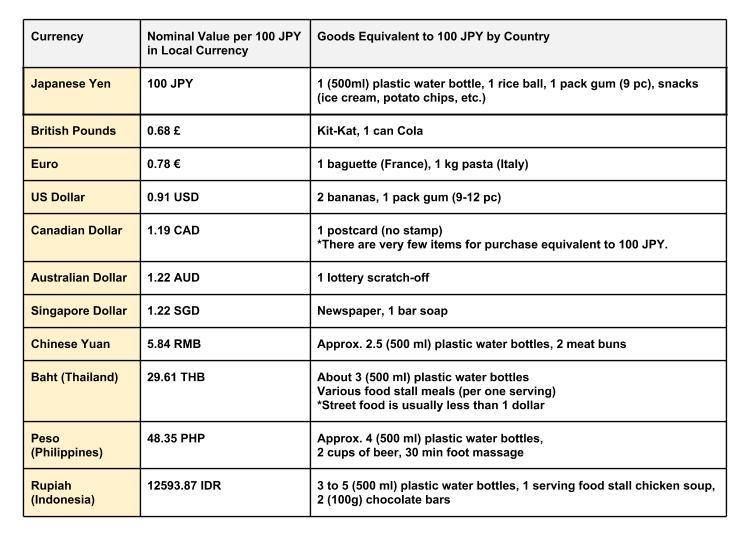
In Western countries where prices tend to be higher, items that can be purchased equivalent to the local currency's 100 JPY are limited. However in other Asian countries where the prices are much cheaper, for the same amount you can even buy a delicious full-serving meal. Yet for those visiting Japan from one of those less expensive Asian countries, Japan's prices can still appear to be quite high.
There are many other things that you can buy in Japan for around 100 yen!
100 yen shops:
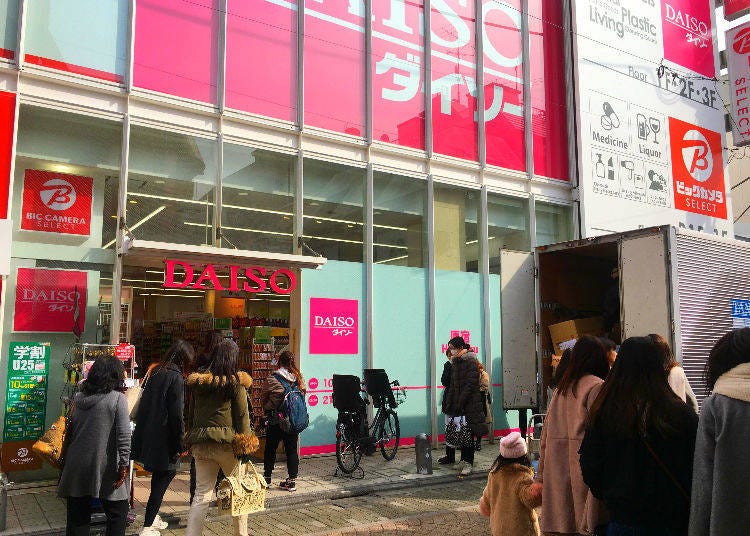
At the 100 yen shop, Daiso, almost every item is just ¥100! There are many items which are both convenient and good quality. There are also Japanese goods that make perfect souvenirs!
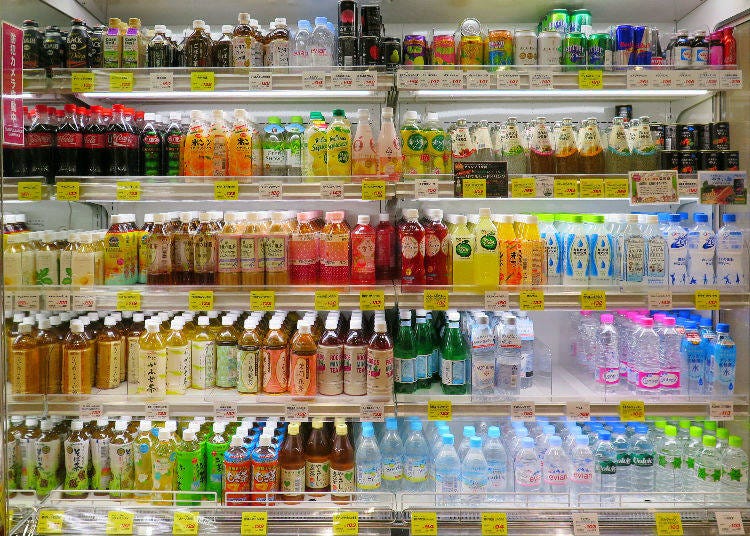
500ml bottle of water or tea: buying at a supermarket is cheaper than at a vending machine. In the Western countries and Singapore mentioned above, the price of water is higher than Japan, but in other Southeast Asian countries, it is reasonably less expensive.
Convenience store coffee
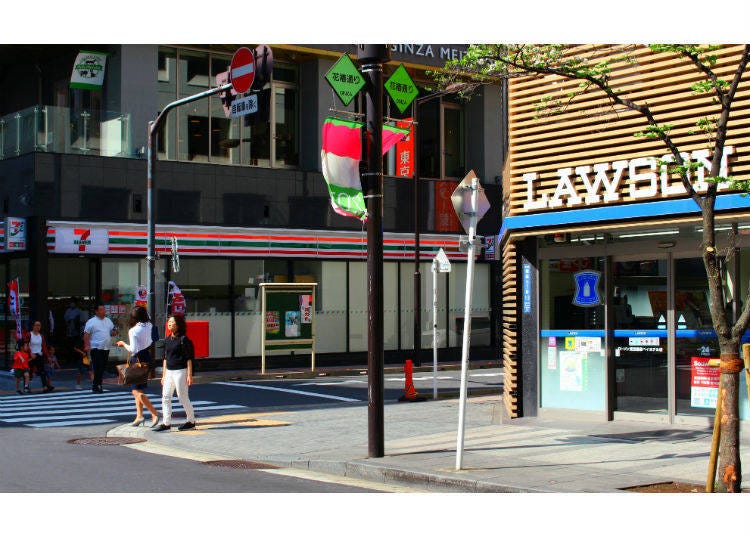
You can purchase freshly brewed coffee (hot or ice) with the drip machine in most convenience stores.
Conveyor Sushi:
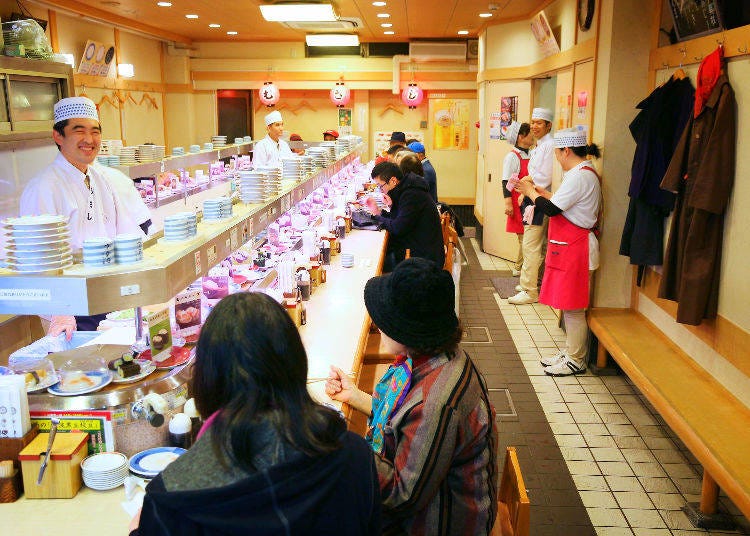
In these shops you can buy sushi as cheap as ¥100 a place (2 pc).
"Gacha" / Capsule Toys:
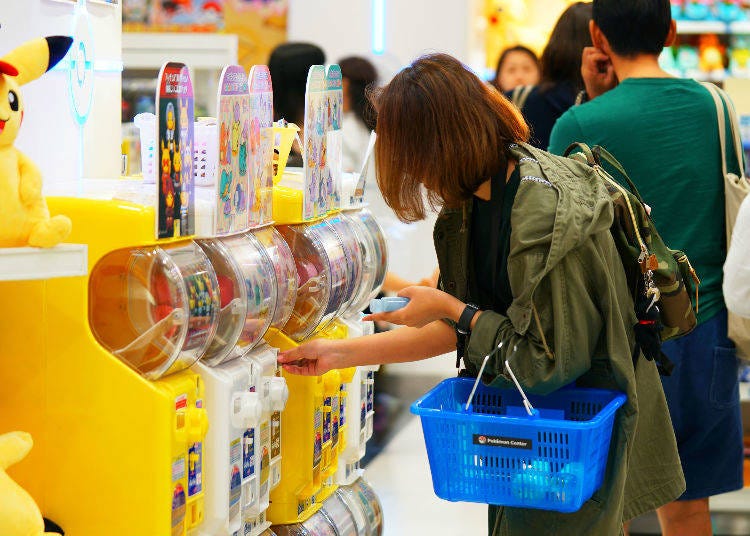
One toy is ¥100. There are Gacha machines installed in various parts of the country, especially major mass retailers and at airports.
Sento / Onsen Massage Chair (10 min):
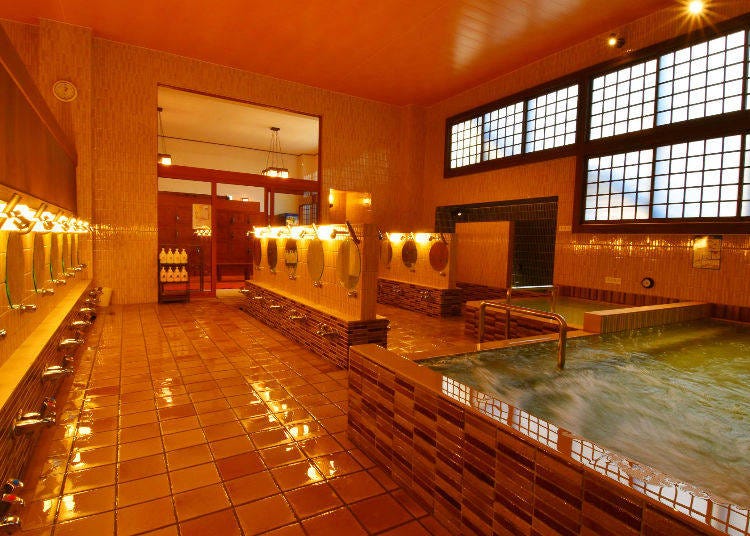
In many sento (Japanese public baths) or Onsen (hot springs), you will find electric massage chairs installed in some areas. Great to relax after a bath!
Manga Rental (1 book, 1 week):
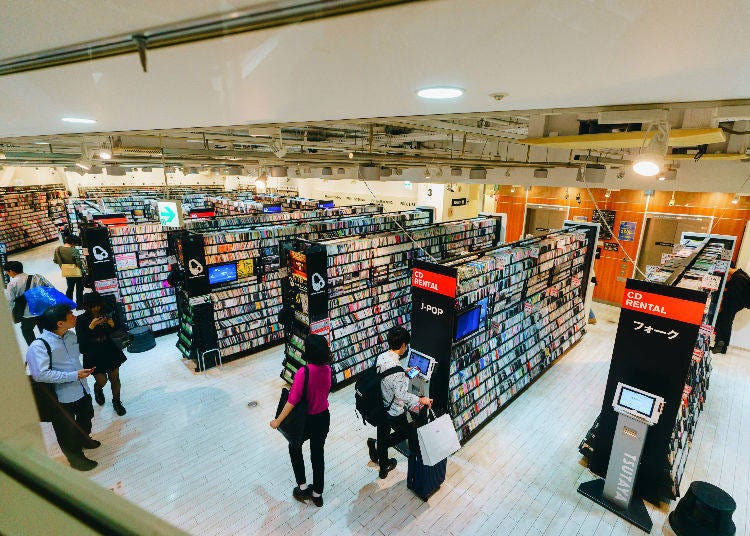
In Japan, you can rent manga at a rental shop. It costs only ¥100 to rent a book for 1 week at the major rental shop, Tsutaya.
How Much is 1000 Yen Worth? Exchange Rate Compared With Foreign Currencies
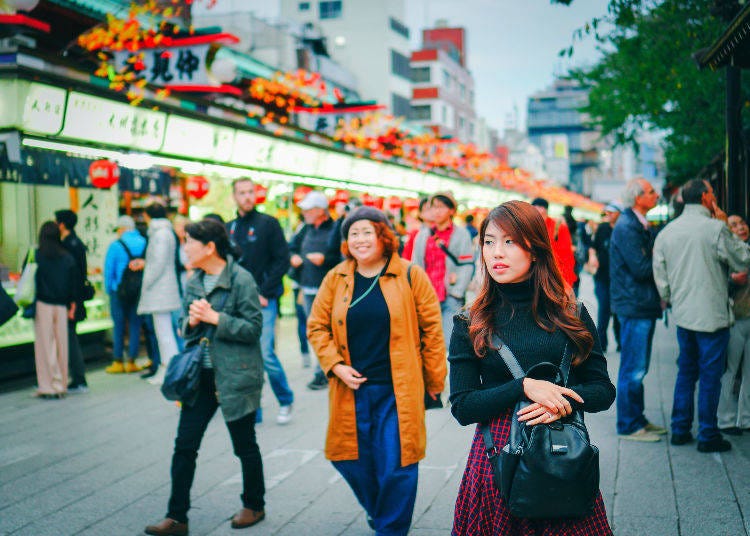
The following chart shows the currency value for each country per 1,000 Japanese yen.
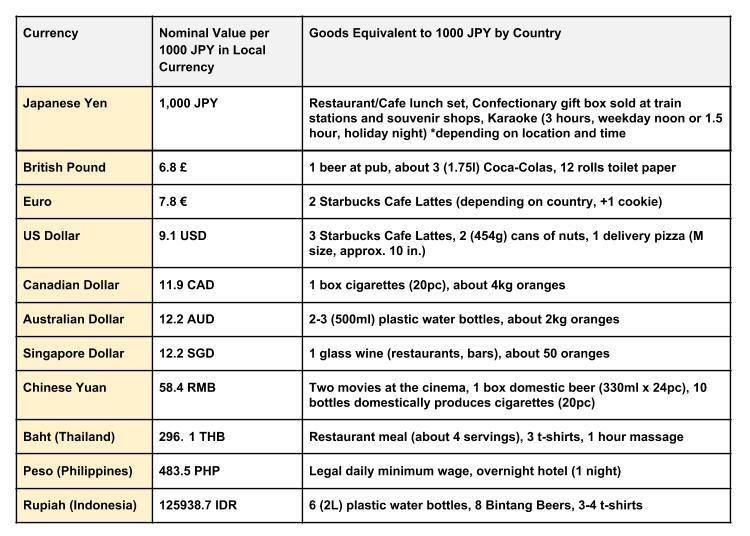
At ¥1,000, it is also possible to find some great souvenirs! The range of items you can buy varies greatly.
Japan's consumer tax is 8%. Pay attention to indications whether an item is tax inclusive or not!
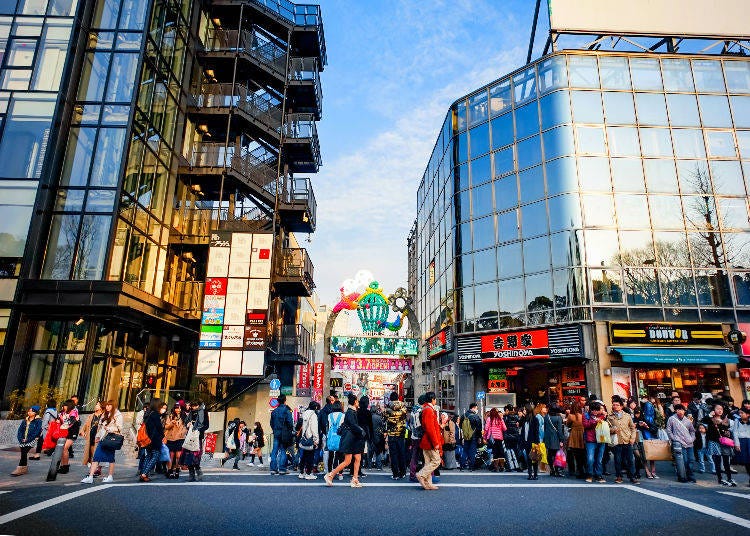
The consumption tax in Japan in 8%. When selling products and services, depending on the country it is required to include a "tax included" notice in the price display. Even in the case of tax not included, it is necessary to include the total tax inclusive price in parenthesis somewhere on the price display.
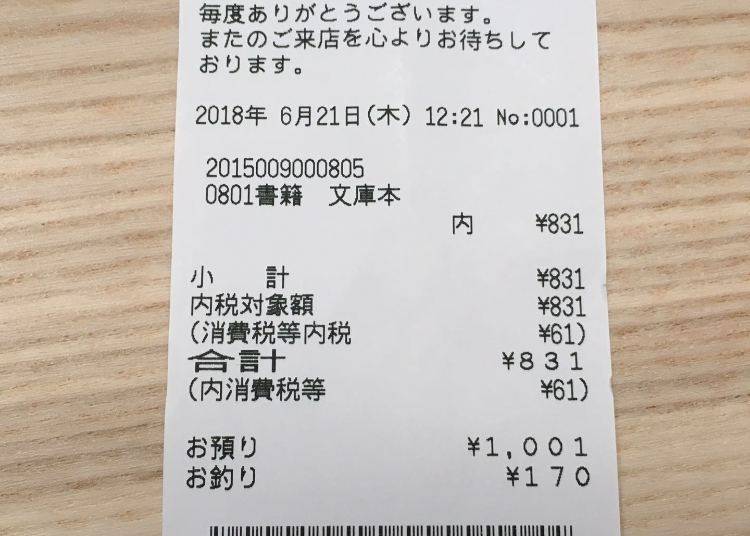
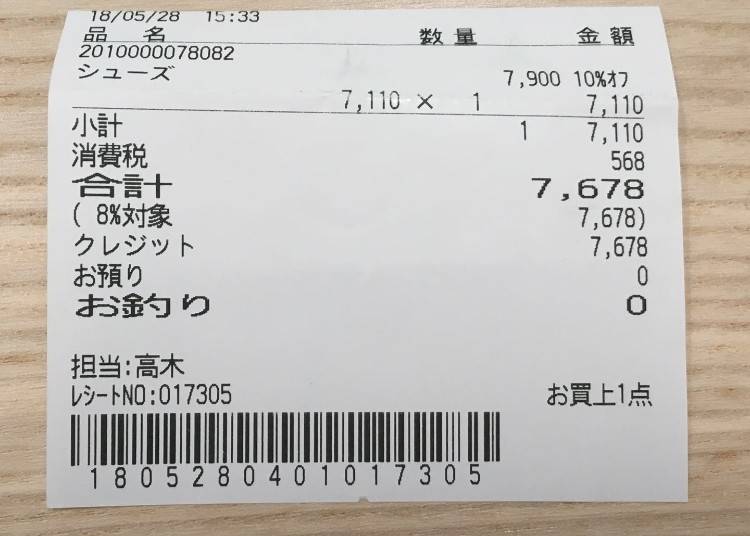
The Japanese consumption tax will be raised to 10% starting October 1, 2019. Although inconvenient to increase the tax amount, it will be easier to calculate the tax amount, and the need for small change may also be reduced, making shopping a little easier.
Pay Attention to Payment Method! Japan is a Cash Society.
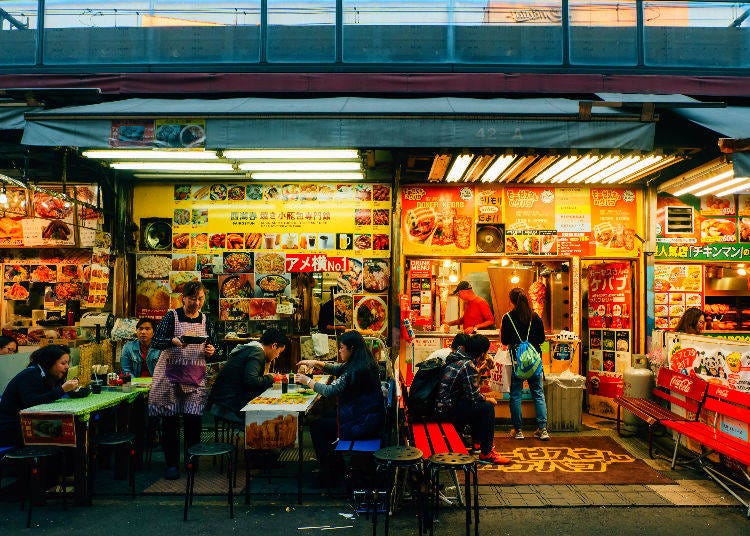
While credit cards can be used in most shops in department stores, shopping malls, home appliance retailers, convenience stores, and major chains, many local shops, private shops, souvenir shops, and even some restaurants, taverns and inns, only accept cash as payment.
And while there are some stores that also accept electronic currency such as IC Cards and Apple Pay, those are also quite limited and usually found in certain stores and in central areas.
Out of Cash? Use the Convenience Store ATMs
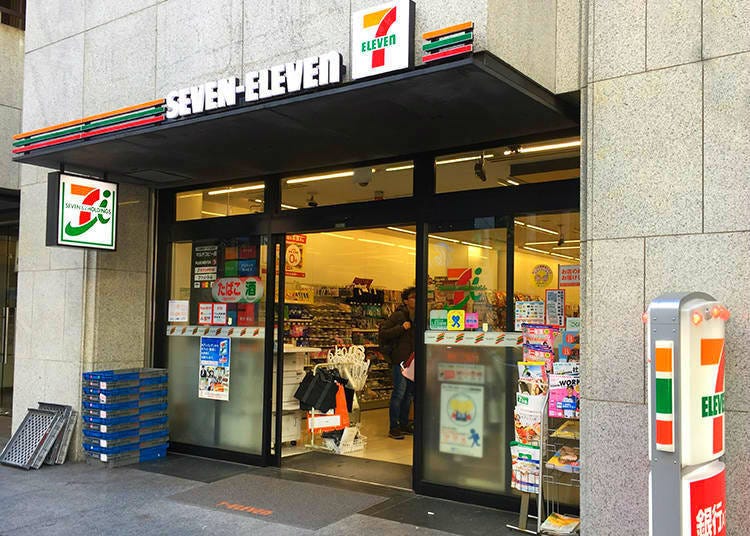
Even when you run low on Japanese yen, you don't have to go to a special currency exchange place or a bank. 7-Eleven ATMs nationwide, as well as Family Mart's "Yucho ATM" allows withdrawals in Japanese yen from overseas credit cards at any time, 24 hours. So you can rest easy even when you find yourself low on cash.
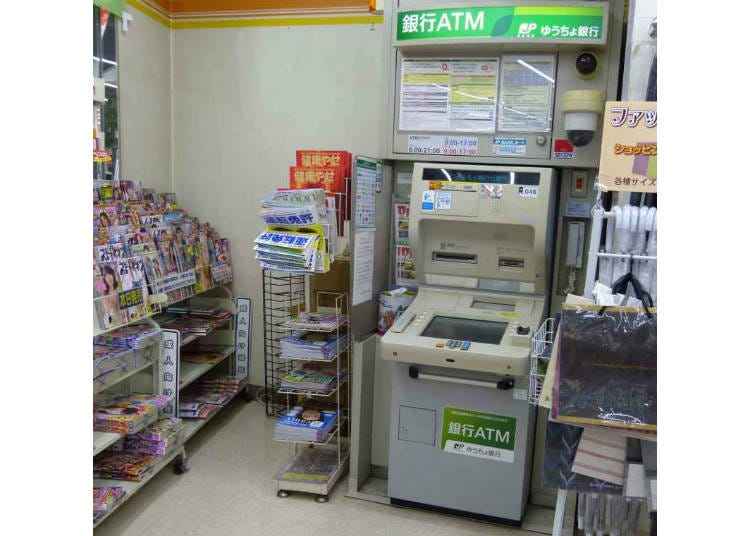
*Yucho Bank is a Japanese bank operated by the Japanese Post Office. Please note they may not be available at all Family Mart stores.
* VISA, Master, UnionPay and other credit cards issued abroad can be used at most locations, but note that there may be some cards that cannot be used depending on location.
Lighten up Your Wallet by Using Your Coins!
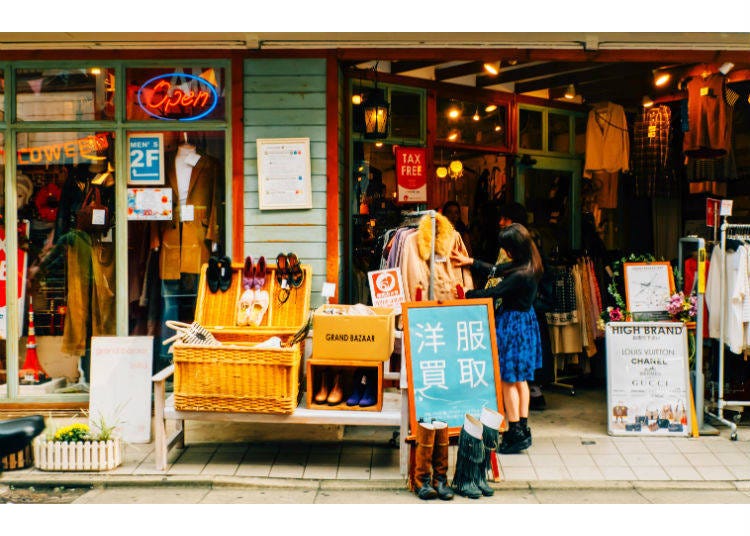
In Japan, it is common to receive small change in the form of coins. But in a society where payment by cash is mainstream, it can become burdensome to have your wallet weighed down by all the change. To reduce change as much as possible, use all your ¥1 coins when you can.
In Japan there is no tip system, and there is also no decimal point system indicating below the dollar (such as US cents). All prices are also displayed including consumption tax. So you will only pay the exact price that reads at the register. Although most people prefer to pay in bills because of convenience, because of the line of people behind them, or just because it is troublesome to count out small change, it is still possible and can be more convenient to pay exact amounts including change to avoid accumulating too many coins.
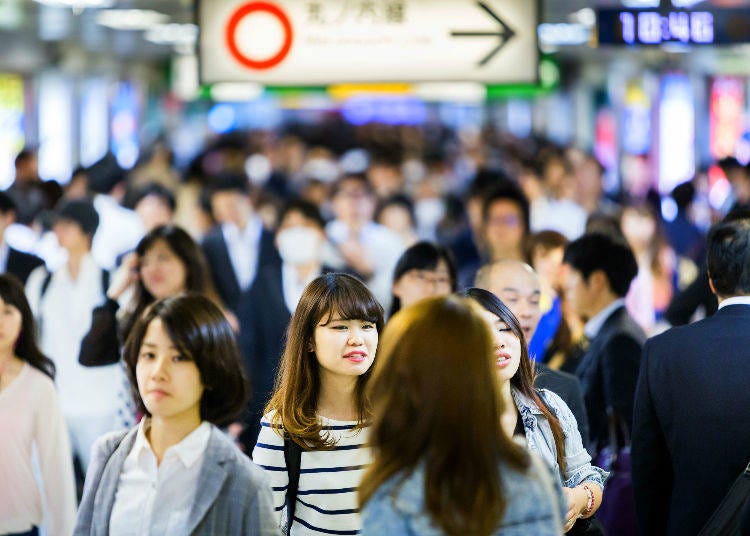
If you don't want to use small change, don't want to take out your wallet, or just have too many small items to be bothered with, you can also use your IC Transportation Card (such as Suica) at convenience stores and vending machines if you charge it with money beforehand.
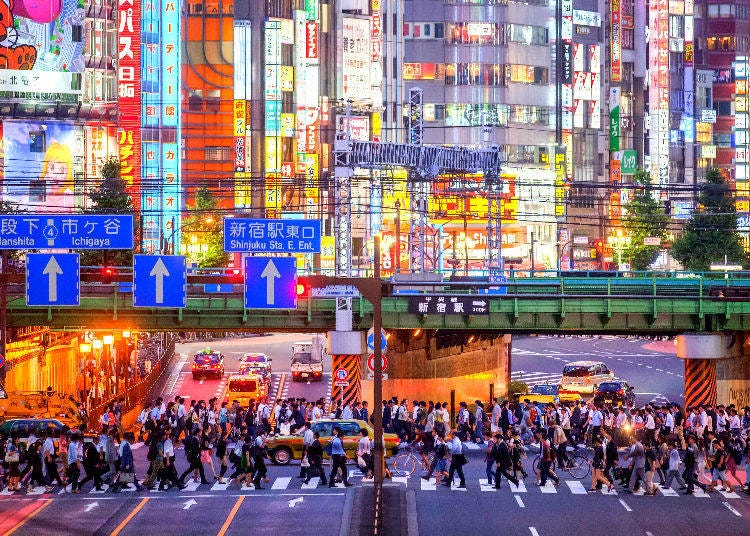
Japan's deflation has continued for about 20 years, and it is said that the prices of various goods and services have become cheaper. Especially for those who are coming from Western countries where prices are generally higher, you may find many things to be particularly cheap. Even from other Asian countries, you may find some things to be more reasonable than expected.
For those used to paying predominantly by card or other electronic systems, you may feel irritated at first with the Japanese cash system. However, with the various convenient tools available such as cash, cards, electronic money and IC cards, anyone can find a way to spare both time and stress when shopping.
*Prices and options mentioned are subject to change.
*Unless stated otherwise, all prices include tax.
Popular Tours & Activitiess
Recommended places for you
-

Kanzenkoshitsuyakinikutabehodai Gyugyu Paradise Sannomiya
Yakiniku
Kobe, Sannomiya, Kitano
-

Jukuseiniku-to Namamottsuarera Nikubaru Italian Nikutaria Sannomiya
Izakaya
Kobe, Sannomiya, Kitano
-
Appealing

Rukku and Uohei
Izakaya
Sapporo / Chitose
-

Kambei Sannomiyahonten
Yakiniku
Kobe, Sannomiya, Kitano
-

ISHIDAYA Hanare
Yakiniku
Kobe, Sannomiya, Kitano
-
Goods

Yoshida Gennojo-Roho Kyoto Buddhist Altars
Gift Shops
Nijo Castle, Kyoto Imperial Palace
-

First Japan Cherry Blossom 2026 Forecast Announced! Here's When & Where to See Sakura in Japan
-

This Winter, Godzilla Takes Over Haneda Airport
by: Guest Contributor
-

Jujutsu Kaisen Takes Over JR East With a Wrapped Shinkansen This Winter
by: Guest Contributor
-

Strawberries, Style, and Tokyo’s Coolest Neighborhood: Winter Afternoon Tea in Kichijoji
by: Guest Contributor
-
Ad

(Opening in Jan 2026) 'THE SUMO LIVE RESTAURANT HIRAKUZA GINZA TOKYO!' 5 Exciting Ways to Experience the World of Sumo!
-
Ad

Complete Guide to Ueno's National Museum of Nature and Science, the Perfect Place to Visit on Rainy Days or With Children
-

5 Best Hotels Near Universal Studios Japan (Osaka): Top-Rated Places to Stay
by: WESTPLAN
-

Japan's Shinkansen Goes Half-Price!? JR East Launches "Osakini Tokudane Special (50% Off)"
-

Kiyomizu-dera Temple: Guide to Visiting Kyoto's Most Famous Sightseeing Spot
-

Kichijoji – Explore Tokyo’s Top-Rated Stylish Suburb in Half a Day!
-

Play On! Japanese Sport and Calendar for 2019
by: David McElhinney
-

Niseko Onsen: 10 Best Hot Springs in Japan's Wild North With Jaw-Dropping Views
by: Guest Contributor
- #best sushi japan
- #what to do in odaiba
- #what to bring to japan
- #new years in tokyo
- #best ramen japan
- #what to buy in ameyoko
- #japanese nail trends
- #things to do japan
- #onsen tattoo friendly tokyo
- #daiso
- #best coffee japan
- #best japanese soft drinks
- #best yakiniku japan
- #japanese fashion culture
- #japanese convenience store snacks












